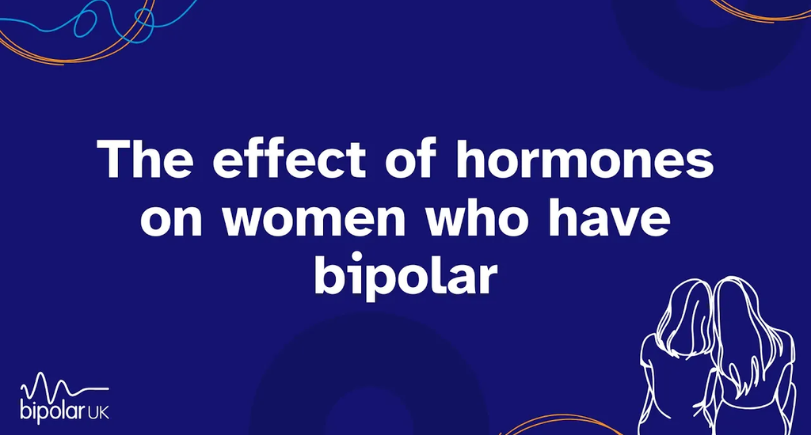
Bipolar and female hormones
Female hormones – including oestrogen, progesterone and testosterone – go up and down at different times in a woman’s life, which can significantly affect bipolar symptoms.
How female hormones affect bipolar
Oestrogen, progesterone and testosterone are important hormones in brain function. All three hormones have an impact on bipolar symptoms in women:
- oestrogen and the feelgood chemical serotonin work together
- progesterone affects anxiety and sleep
- testosterone is linked with mood
Is bipolar different for women?
Bipolar affects men and women in roughly equal numbers, but there are differences in the ways the condition can affect females.
Females with bipolar tend to:
- have more depressive and fewer manic episodes
- be more likely to have bipolar type 2
- be more prone to rapid cycling
- be more likely to have mixed episodes
Some women also find their bipolar symptoms are affected or get worse during times of hormonal change, such as before or during a period, or when they go through perimenopause and menopause.

How hormones and bipolar affect each other
We need more research in this area, which Bipolar UK is campaigning for. But female hormones, such as oestrogen and progesterone, are believed to play a significant role in bipolar in women.
Hormone levels go up and down during the month (linked to the menstrual cycle), during pregnancy and after birth, and when women go through perimenopause and menopause.
Bipolar or hormones?
More research is needed to work out exactly how bipolar and female hormones affect each other. There are some key questions in this area:
Can hormones cause bipolar?
Although some women may have their first bipolar episode at a time of hormonal change such as after giving birth or during perimenopause or menopause, these are triggers of an existing underlying condition, not the cause.
Do hormonal changes trigger bipolar episodes?
Yes, many women find that their bipolar mood changes are triggered or get worse when their hormones shift. For example, in a Bipolar UK survey of 1,000 women:
- 75% told us that their periods affected their bipolar symptoms
- 55% of women going through perimenopause or menopause said it affected their bipolar
We also know that about half of women with bipolar stay well after having a baby, and about half may have an episode of illness at this time of big hormonal change.
Can you have hormonal mood changes and bipolar together?
It is very difficult to tell whether mood changes caused by hormones are due just to the hormones, or to bipolar, or both.
Women without bipolar who get premenstrual syndrome (PMS), or who go through perimenopause or menopause, are known to get symptoms such as mood swings, low mood, anxiety and irritability.
This means women with bipolar could be experiencing both conditions together, and need treatment for both. Or hormones could be making the bipolar worse. More research is needed to understand how the two affect each other.
Are women with bipolar more likely to get hormonal mood swings?
In one study, premenstrual symptoms were reported by twice as many women diagnosed with either bipolar or major depressive disorder, as women who did not have a psychiatric diagnosis (68% vs. 33%).
More research is needed to see if these findings are the case for larger numbers of women.
Bipolar and PMS
Learn what impact premenstrual syndrome can have on your bipolar symptoms
Find out moreBipolar and pregnancy
Discover how planning ahead for when the baby arrives can help you to stay well
Find out moreBipolar and menopause
Explore how hormonal changes during perimenopause can affect your bipolar
Find out more